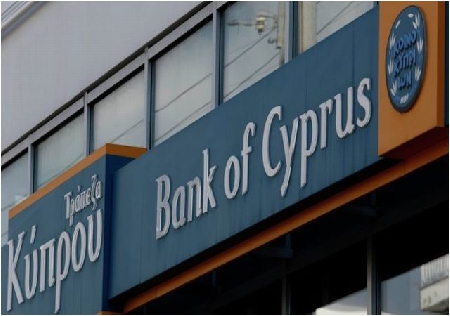The Cyprus Lesson
How the Cyprus crisis has affected international financial markets, in particular the euro.

Corina Cristea, 05.04.2013, 13:42
The result of an oversized banking system and of tax incentives that attracted more or less legal money from all over the world, the Cyprus crisis has had a considerable effect on financial markets in Europe, in particular in terms of the currency exchange rates. This is the opinion of Dragos Cabat, a member in the managing board of the Organisation of Certified Financial Analysts in Romania. He says Romania has also been indirectly affected by this crisis.
Dragos Cabat: “The Cyprus crisis first led to the depreciation of the euro following uncertainty over what was going on in the euro zone and what the solution would be. Once a solution was found, the single European currency started to appreciate again on the market. However, the measures taken in Cyprus, which can also be applied in other euro zone countries at any time, have put pressure both on Cyprus and the euro. The euro will thus continue to be weak compared to the American dollar and the other currencies. Romanian markets are indirectly affected by the volatility of the euro and the even bigger volatility of its own currency, the leu. Anything bad that happens in the euro zone or the European Union will have a strong influence on the leu-euro exchange rate.”
As in the case of Greece, the crisis of Cypriot banks seems to have caught the European Union unprepared. The latter had to take some unprecedented measures to prevent Cyprus from going into default on payment. Cyprus has agreed with the its lenders, the European Union, the European Central Bank and the International Monetary Fund to restructure two of its biggest banks, Bank of Cyprus and the Laiki Bank. Laiki will actually close, and its good assets transferred to the Bank of Cyprus.
Following these measures, Bank of Cyprus depositors are bound to lose around 40% of their deposits, which will be immediately converted into shares to support the recapitalisation of the bank. Another 22.5% of deposits will be frozen in non interest- bearing accounts pending the finalisation of the restructuring process, a project that is estimated to last a few months. These funds may be accessed if need be and in turn be converted into shares.
Faced with the possibility that people might withdraw large sums of money, Cypriot authorities have enforced a temporary restriction on cash withdrawals to 300 euros a day. At the same time money transfers abroad have been capped at 5,000 euros per month, while the cashing of cheques has been banned.
This is the first time in the history of the euro zone when a member state resorts to such harsh measures, the underlying principle of which is general public interest. The 10-billion-euro loan has prevented Cyprus from defaulting on its payments, although it does not provide all the solutions for restoring economic growth and stability to this country, European Commission president Jose Manuel Barroso has said. Cyprus will need to restart the real economy, while at the same time alleviate the social consequences of the economic shock, Barroso went on to say. It is highly unlikely other European states should introduce such drastic measures, IMF spokesman Jerry Rice has said. Cyprus’s case has its idiosyncrasies and couldn’t occur in another Member State. Economic journalist Dan Suciu commented on this prospect:
“It all depends on what statements we choose to believe as being true. Dutch Finance Minister and Eurogroup president Jeroen Dijsselbloem has already made it clear that should the model currently tested in Cyprus prove to be a success, it will be used to intervene in other countries as well. Moreover, we have seen the statements of French president Francois Hollande and of Spanish Prime Minister Rahoi, both arguing against such a move and insisting the measures in Cyprus do not represent a model as such, but rather a singular intervention and nothing more. The statements of the Dutch Minister have sparked great concern, particularly in Spain, a country that finds itself in a somewhat similar situation”.
The solution to the banking problem of Cyprus is a relief not just for the whole of Europe, the vice-president of the Association of Banking and Financial Analysts in Romania Ionut Dumitru has argued:
Ionut Dumitru: “Ensuring the stability of Cyprus’s banking sector and working out a solution could have a positive impact on international financial markets, especially at EU level. Romania has not been affected by the developments in Cyprus, nor will it be affected in the future either”.
Now that the crisis in Cyprus seems to have receded, global markets have responded positively, with the euro rebounding from the recent one-month low against the dollar and international stock markets reporting hikes.






























